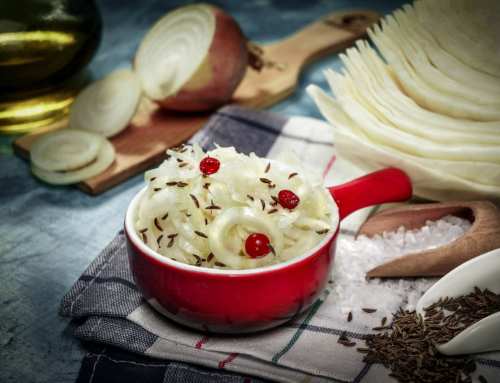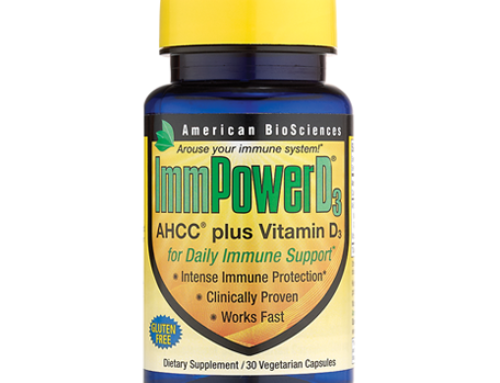Your immune system is the only thing protecting you from a variety of viruses and bacteria found everywhere in the world. Your body has plenty of ways to help protect you. From the tiny hairs in your nose that stop germs to all the different immune system cells in your body that fight off invaders, you have an arsenal ready to protect you. Various outside factors can make a difference in how well your immune system performs and how much protection it is able to provide compared to what it is capable of. Whenever your immune system is struggling and you need more immune support, evaluate your life and consider some of the following influencing factors.
Adrenals and Stress
 Stress can affect your body in a variety of ways, from uncontrollable eye twitches to tanking your immune system. When you’re stressed, your body essentially stays in “fight or flight” mode. This means that your body is producing high amounts of adrenaline and cortisol, which are strong stress hormones. Feeling continually stressed can cause your body to not put the care and attention into body functions that it normally would, because it’s focused on making sure your body is prepared for the worst. This can lead to overtaxed adrenal glands, poor digestion, and even an underproductive immune system when you need it the most. Make an effort to find ways to reduce the stress in your life. Take some time for your body to reduce the amount of both adrenaline and cortisol in your body in order to see improvements in your immune system.
Stress can affect your body in a variety of ways, from uncontrollable eye twitches to tanking your immune system. When you’re stressed, your body essentially stays in “fight or flight” mode. This means that your body is producing high amounts of adrenaline and cortisol, which are strong stress hormones. Feeling continually stressed can cause your body to not put the care and attention into body functions that it normally would, because it’s focused on making sure your body is prepared for the worst. This can lead to overtaxed adrenal glands, poor digestion, and even an underproductive immune system when you need it the most. Make an effort to find ways to reduce the stress in your life. Take some time for your body to reduce the amount of both adrenaline and cortisol in your body in order to see improvements in your immune system.
High-Sugar Diet
 Your diet plays a large role in supporting your immune system and overall health. Eating a healthy, well-rounded diet that is low in refined sugars is something that everyone can do to help their immune system. The foods you eat can either provide short-term energy or long-term fuel to help you feel your best. In addition, eating a healthy diet can help reduce how hard your body has to work to remove problematic components from your system.
Your diet plays a large role in supporting your immune system and overall health. Eating a healthy, well-rounded diet that is low in refined sugars is something that everyone can do to help their immune system. The foods you eat can either provide short-term energy or long-term fuel to help you feel your best. In addition, eating a healthy diet can help reduce how hard your body has to work to remove problematic components from your system.
Gut Health
 Your gut health is a critical factor in your overall health, and helps to provide immune support. Your body has a wide variety of ways to protect itself. Your stomach acid helps kill any invaders that manage to come in on the food that we eat. In addition to your stomach acid being a component of your immune system, your intestines are also home to various gut bacteria. These bacteria help to not only digest your food, but to also improve your immune system’s ability to respond to unknown invaders. You gut’s ability to absorb nutrients properly also helps boost your body’s energy reserves and provide all the nutrients that your immune system needs to function properly.
Your gut health is a critical factor in your overall health, and helps to provide immune support. Your body has a wide variety of ways to protect itself. Your stomach acid helps kill any invaders that manage to come in on the food that we eat. In addition to your stomach acid being a component of your immune system, your intestines are also home to various gut bacteria. These bacteria help to not only digest your food, but to also improve your immune system’s ability to respond to unknown invaders. You gut’s ability to absorb nutrients properly also helps boost your body’s energy reserves and provide all the nutrients that your immune system needs to function properly.
Regular Sleep
 While we all know that we feel better when we get regular sleep, it doesn’t always happen. However, for your immune system’s sake, you should make more of a point to get the recommended seven to nine hours of sleep a night. In fact, half the recommended amount of sleep can force your body to produce only half as many antibodies as it typically would if you were getting the recommended amount, according to a University of Chicago study that examined the effects of sleep in conjunction with the flu shot.
While we all know that we feel better when we get regular sleep, it doesn’t always happen. However, for your immune system’s sake, you should make more of a point to get the recommended seven to nine hours of sleep a night. In fact, half the recommended amount of sleep can force your body to produce only half as many antibodies as it typically would if you were getting the recommended amount, according to a University of Chicago study that examined the effects of sleep in conjunction with the flu shot.
To Purell or Not?
 Another factor that has an effect on your immune system and it’s ability to protect you is hygiene. While it’s important to be cleanly and do things like wash your hands after you use the bathroom, being overly cleanly can lead to your immune system not being able to gather enough information to recognize and defend against invaders. Additionally, the overuse of antibiotics, hand sanitizers, and antibiotic soaps all impact our body’s immune system. They cause the body to not be exposed to the simple germs that can provide a database for your immune system to create new antibodies. They can also lead to super bacteria that your body cannot easily fend off, especially when it doesn’t have the information it needs in order to do so. Limiting your use of antibacterial products, and only using antibiotics when they’re needed, are ways you can help you immune system function at peak performance.
Another factor that has an effect on your immune system and it’s ability to protect you is hygiene. While it’s important to be cleanly and do things like wash your hands after you use the bathroom, being overly cleanly can lead to your immune system not being able to gather enough information to recognize and defend against invaders. Additionally, the overuse of antibiotics, hand sanitizers, and antibiotic soaps all impact our body’s immune system. They cause the body to not be exposed to the simple germs that can provide a database for your immune system to create new antibodies. They can also lead to super bacteria that your body cannot easily fend off, especially when it doesn’t have the information it needs in order to do so. Limiting your use of antibacterial products, and only using antibiotics when they’re needed, are ways you can help you immune system function at peak performance.
Attitude
 Researchers have put a lot of time and thought into whether or not your attitude and mood can impact your immune system. Your mood does play a role with your immune system. Researchers have found that optimistic individuals tend to have better overall immune systems. The cause of this is still up for debate, but some theories include ideas such as positive people take better care of themselves which helps to increase the immune system, and that positive people are less stressed than their pessimistic peers, and it’s stress that actually provides the drop in immune function.
Researchers have put a lot of time and thought into whether or not your attitude and mood can impact your immune system. Your mood does play a role with your immune system. Researchers have found that optimistic individuals tend to have better overall immune systems. The cause of this is still up for debate, but some theories include ideas such as positive people take better care of themselves which helps to increase the immune system, and that positive people are less stressed than their pessimistic peers, and it’s stress that actually provides the drop in immune function.
While you know that it is important to keep your immune system as strong as possible, there are daily habits that many people don’t realize have a negative effect on their immune system. By addressing these factors and providing your body with the right factors to help support your immune system properly, you’ll not only start to see changes in your life, but you’ll also feel better.













Leave A Comment
You must be logged in to post a comment.